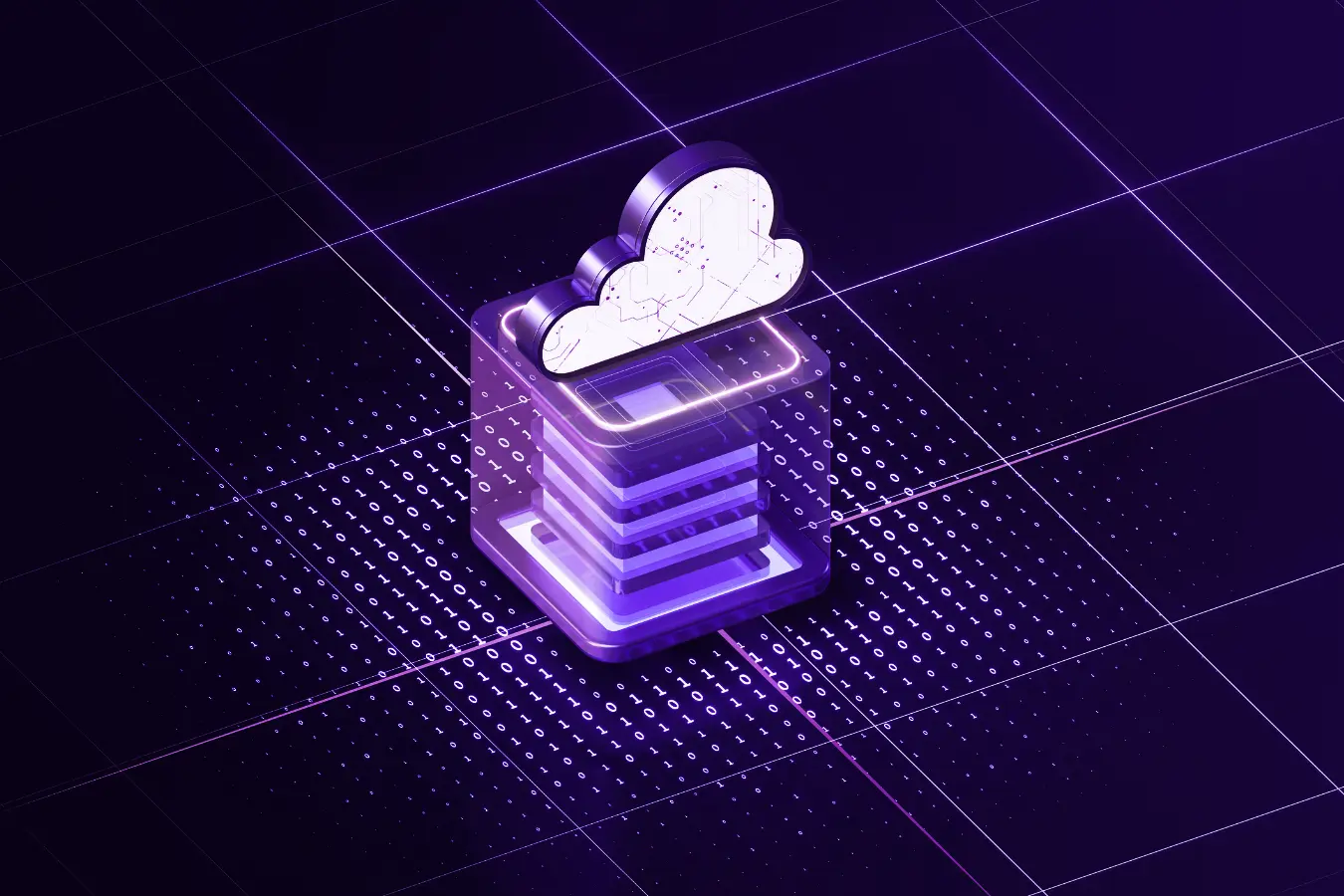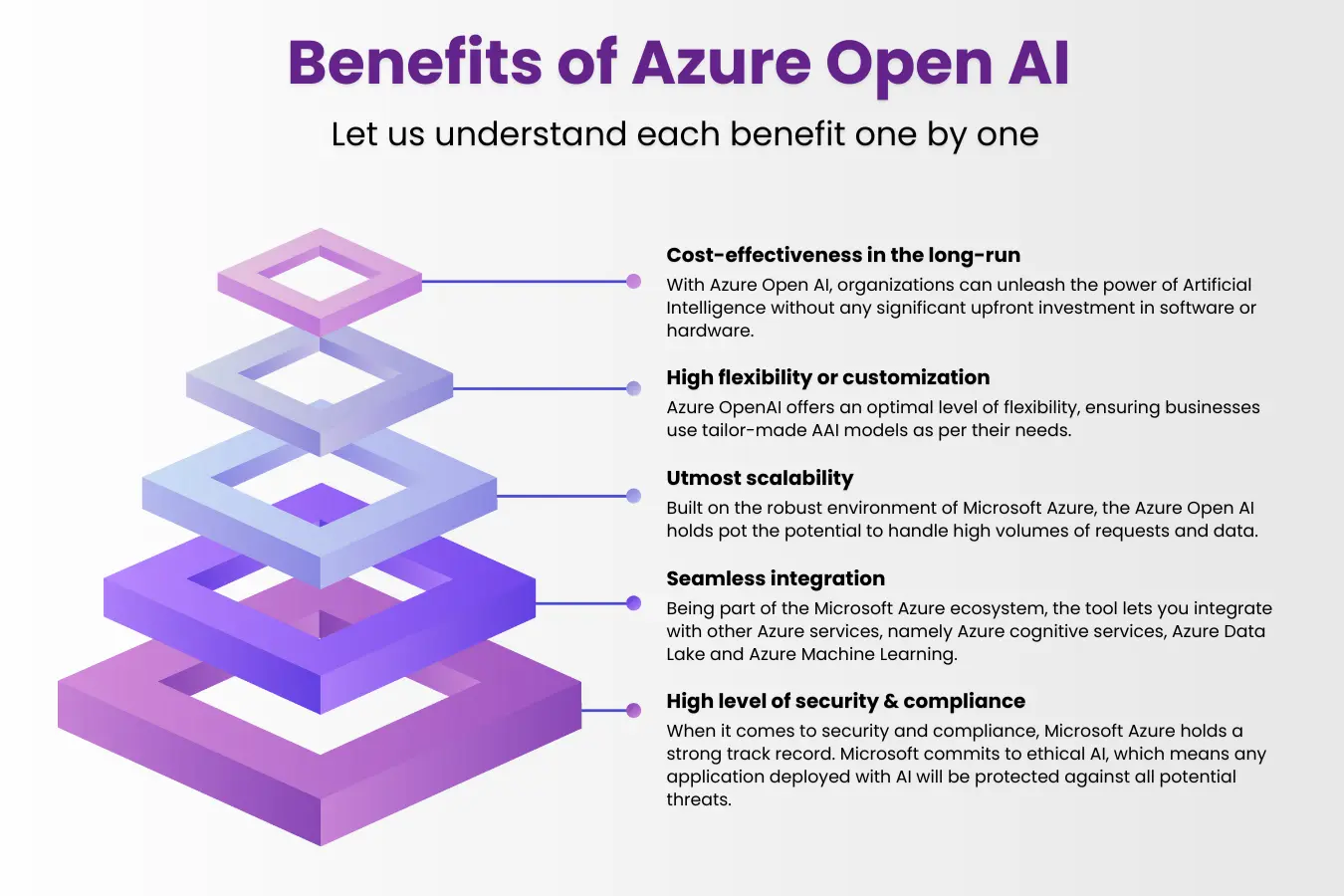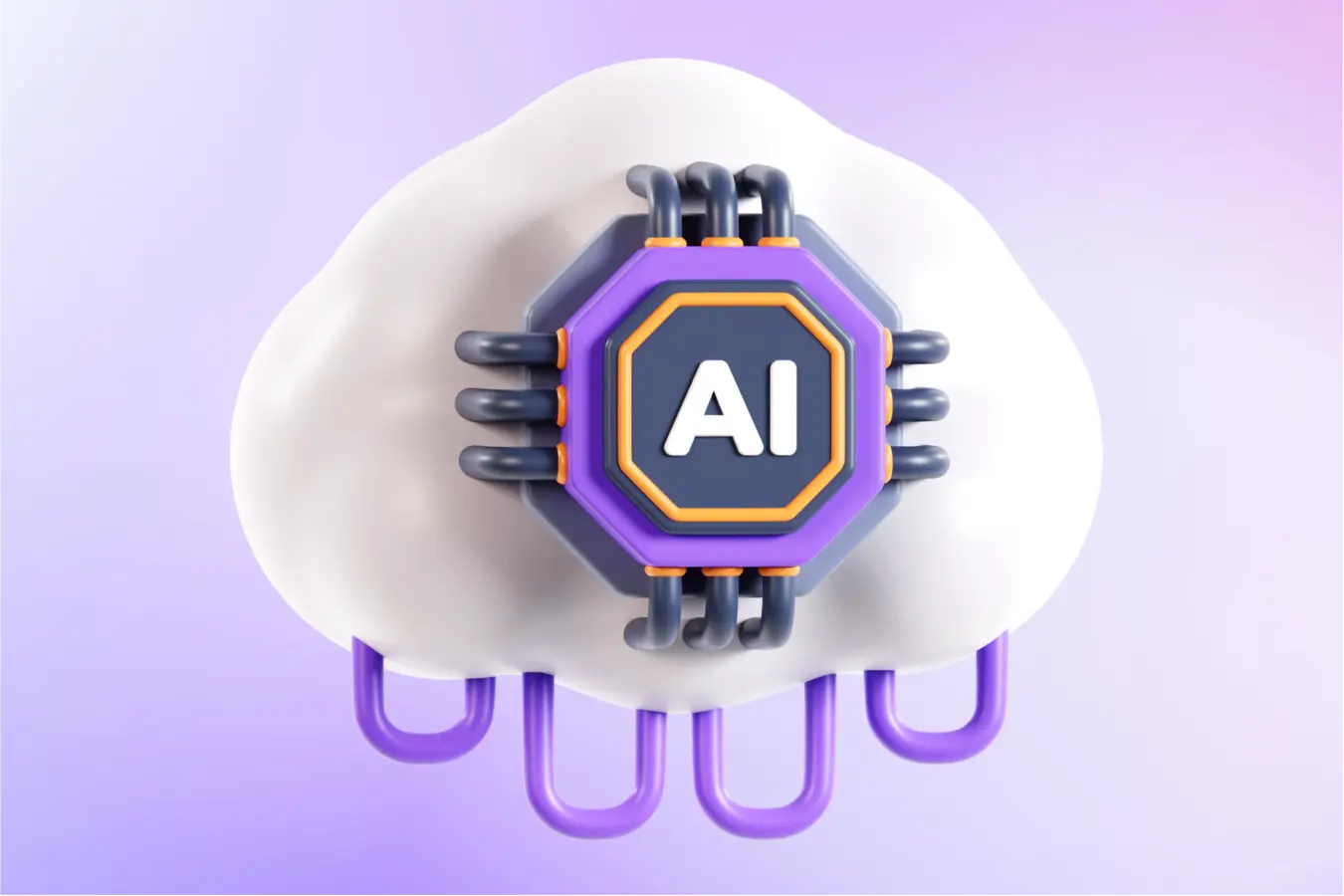
Introduction
AI has come a long way ever since its inception. Once a subject of scientific fiction, AI is now deeply rooted in different aspects of our everyday lives. In the business world, AI (Artificial Intelligence) is no longer an added innovation but a necessity today. Businesses today are constantly looking out for ways to leverage AI to gain a competitive edge.
Right from automating everyday tasks to analyzing data to making strategic business decisions or improving customer experience, AI is revolutionizing the way of interacting and connecting with the world.
- According to Gartner’s survey, by 2027, investment in AI software is expected to reach $297.9 billion.
- Moreover, as per Forbes, 63% of business leaders believe AI boosts revenue, and 44% say it reduces costs.
Statistics clearly indicate that AI has the potential to transform industries and drive revenue. And when talking about the most powerful Artificial Intelligence platform, Azure OpenAI is hitting the top spot in the list today.
Azure OpenAI is a robust and comprehensive tool that combines the capabilities of Microsoft Azure and OpenAI. It offers a suite of tools and services that provide dynamic tech solutions to AI engineers, solution architects, and developers. While there are other AI solutions available, such as AWS Cloud AI Developer Services (Legacy) and IBM Watson, Azure OpenAI consistently earns recognition as the top cloud AI developer according to Gartner. This top ranking is due to its exceptional customer experience and product capabilities.
Moreover, did you know Microsoft’s Azure Integration Services has been recognized as a Leader in the 2024 Gartner® Magic Quadrant™ for-Integration Platform as a Service? This achievement itself makes Azure a top choice for businesses seeking seamless integration solutions.
In this blog, we will dive into the world of Microsoft Azure OpenAI, exploring its benefits, features, and best practices for maximum utilization.
Azure OpenAI: Understanding the Basics
Azure OpenAI, a cloud-based platform designed to provide businesses, AI engineers, and developers with a wide range of Artificial Intelligence services such as language processing, computer vision, and speech recognition. The service can be integrated into their application seamlessly to make them work more proficiently.
Businesses can easily deploy AI algorithms and models without having expertise in machine learning or having any extensive IT infrastructure. Azure Cognitive Services, which is one of the key components of Azure OpenAI provides a collection of in-built AI models that can be easily implemented into the application. Furthermore, it works well when integrated with other Azure services, for example, Azure Machine Learning services. Integrating Azure Open AI with Azure Machine Learning services allows developers to build, implement, and manage customized machine learning models.
Azure OpenAI Benefits

Now, Azure OpenAI has an array of benefits. But cost-efficiency, high flexibility, scalability, seamless integration, and a high level of security & compliance are the topmost benefits.
Let us understand each benefit one by one:
- Cost-effectiveness in the long run – With Azure OpenAI, organizations can unleash the power of Artificial Intelligence without any significant upfront investment in software or hardware. With Microsoft Azure’s pay-as-you-go pricing model, they can scale their AI initiative as per their needs, all this ensuring the optimal cost-efficiency of Azure OpenAI.
– Use Case: A logistics firm with the help of Azure OpenAI can optimize routing effortlessly, significantly reducing fuel costs and improving delivery time. All this leads to higher customer satisfaction and retention.
- High flexibility or customization – Azure OpenAI offers an optimal level of flexibility, ensuring businesses use tailor-made AAI models as per their needs. It allows organizations to fine-tune AI models to suit their specific business needs, which is not always possible with other pre-trained models.
– Use Case: A finance company can fine-tune ChatGPT, to learn and get finance-industry-related jargon. This will make the AI model more proficient in generating valuable reports or attending to customer queries about investment.
- Utmost scalability – Built on the robust environment of Microsoft Azure, Azure OpenAI holds pot the potential to handle high volumes of requests and data. This ability is important for any application to process vast amounts of data in real time.
– Use Case: An e-commerce company can initially start with basic Chabot to offer customer support and then gradually scale it to handle more complex tasks such as product recommendations and so on.
- Seamless integration: Being part of the Microsoft Azure ecosystem, the tool lets you integrate with other Azure services, namely Azure cognitive services, Azure Data Lake and Azure Machine Learning. This seamless integration benefit allows businesses to develop an end-to-end pipeline of AI, from pre-processing and data ingestion to deployment and model training.
– Use Case: A textile manufacturing firm using Microsoft Azure IoT for monitoring equipment can seamlessly integrate with Azure OpenAI to predict maintenance requirements based on the collected data.
- High level of security & compliance – When it comes to security and compliance, Microsoft Azure holds a strong track record. Microsoft commits to ethical AI, which means any application deployed with AI will be protected against all potential threats.
– Use Case: A healthcare organization using Azure OpenAI for patients’ data analysis will be assured that Azure AI models comply with ethical standards and data protection.
How To Get Started with Azure OpenAI
Now, to get started with Azure OpenAI, it is important to get familiar with Microsoft Azure and Azure portal. You can learn more about Azure and its portal Introduction to Azure OpenAI Service. Furthermore, having an in-depth knowledge of generative AI is also important for using Azure OpenAI.
Apart from this, it is also important to create an Azure account. And if you already have one, you need to create Azure OpenAI instance. To create an Azure OpenAI instance, simply click on “Create a resource” in the portal, search for “Azure OpenAI” and select appropriate services.
Azure Ecosystem for Azure OpenAI
The Azure ecosystem encompasses a vast array of cloud services and solutions, providing a reliable and scalable platform for businesses’ digital transformation initiatives. With Azure OpenAI service, Microsoft’s enterprise-grade cloud infrastructure seamlessly integrates with OpenAI’s advanced AI models, offering enhanced reliability and performance.
Through this integration, businesses can leverage the strengths of both Azure and OpenAI to develop innovative AI-powered solutions. Azure’s robust security measures, scalability, and global reach complement OpenAI’s state-of-the-art AI technologies, ensuring that businesses can deploy and manage AI applications with confidence and reliability.
Together, Azure AI and Azure OpenAI form a powerful ecosystem that empowers organizations to harness the full potential of artificial intelligence, driving innovation, efficiency, and growth. Let’s learn about some of the most powerful Azure AI features that are sure to boost your business productivity when integrated with Azure OpenAI.
- Azure Cognitive Services: Azure Cognitive Services provides pre-trained AI models that can be easily integrated into applications. These services cover various domains, including vision, language, speech, and decision-making. By leveraging Azure Cognitive Services, businesses can add powerful AI capabilities to their applications with minimal effort.
- Azure Machine Learning: Azure Machine Learning is a cloud-based service that enables organizations to build, deploy, and manage machine learning models at a scale. With Azure Machine Learning, businesses can streamline the entire machine learning workflow, from data preparation and model training to deployment and monitoring.
- Azure Databricks: Azure Databricks is a fast, easy, and collaborative analytics platform that leverages Apache Spark for big data processing and machine learning. With Azure Databricks, businesses can accelerate their data analytics and AI initiatives, enabling them to derive valuable insights from large and complex datasets.
- Natural Language Processing: It provides powerful natural language processing capabilities, allowing your applications to understand and interpret human language. Its built-in features like sentiment analysis, language translation, and entity recognition, you can build applications that can process and analyze text effectively.
For example – An E-Commerce website integrating with ChatGPT, to provides a “Customer Service Bot” feature to its customers for handling common queries like “How to cancel my order,” “How to return a product” or “Where’s my order”.
- Speech Recognition: Azure OpenAI includes speech recognition capabilities that enable your applications to convert spoken language into written text. This feature is particularly useful for applications that involve voice commands, transcription services, or interactive voice response systems.
- Computer Vision: Azure OpenAI offers computer vision capabilities that enable your applications to analyze and understand images and videos. With features like image classification, object detection, and facial recognition, you can build applications that can recognize and interpret visual content.
These are just a few examples of the features available in Azure OpenAI services. The platform offers a wide range of other services and capabilities that can be tailored to your specific needs.
How to Effectively Utilize Azure OpenAI
Now that we have explored the features and capabilities of Azure OpenAI, let’s discuss some best practices for effectively utilizing this powerful platform.
- Define clear objectives: Before diving into any AI project, it is crucial to clearly define your objectives and identify the specific business problems you want to solve. By having a clear understanding of your goals, you can choose the right Azure OpenAI services and tools that align with your objectives.
- Invest in data preparation: High-quality and well-prepared data is the foundation of any successful AI project. Invest time and effort in cleaning, preprocessing, and transforming your data before feeding it into Azure OpenAI services. This will help improve the accuracy and performance of your AI models.
- Leverage transfer learning: Azure OpenAI provides pre-trained models that can be fine-tuned on your specific datasets. By leveraging transfer learning, you can save time and resources by building on existing models and customizing them to your specific use case.
- Continuously monitor and evaluate: AI models require ongoing monitoring and evaluation to ensure they remain accurate and performant. Regularly monitor the performance metrics of your AI models and retrain them as needed. Azure OpenAI provides tools and services for model monitoring and evaluation, making it easier to track model performance over time.
Azure OpenAI Use Cases
Discover the potential of Azure OpenAI use cases:
-
Content creation:
Generative AI in Azure AI helps create impactful content using relevant keywords efficiently. It produces high-quality graphics, images, and videos. This saves time and resources for businesses.
- Personalized marketing: Generative AI in Azure AI boosts marketing ROI by delivering personalized campaigns. It analyzes customer data to tailor content for specific needs. This improves engagement and conversion rates.
- Virtual assistants and Chatbots: Azure AI’s virtual assistants provide quick responses to customer queries. They enhance service efficiency and offer personalized support. These assistants provide recommendations, improving customer satisfaction and loyalty. For example, by using Azure Bot services businesses can enhance customer service, reduce wait times, improve operational efficiency, and boost customer loyalty and satisfaction.
Conclusion
In conclusion, Azure OpenAI empowers businesses to solve complex problems with advanced AI capabilities. By understanding the basics, exploring the features, and following best practices, businesses can effectively utilize Azure OpenAI. This allows them to unlock new opportunities and gain a competitive edge.
Remember to stay updated with the latest advancements and continuously learn from the abundant resources provided by Microsoft. Let Aptly Tech professionals help you make better decisions. We will guide you through the intricacies of Azure OpenAI, maximizing the value you derive from this transformative technology.
Microsoft have recognized our expertise with the Gold Partnership designation. Our expert team of Microsoft consultants have successfully delivered many database, reporting and AI projects.




